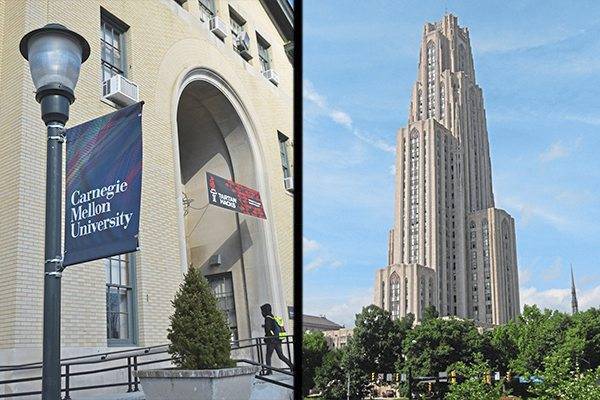Officials at the University of Pittsburgh and Carnegie Mellon University joined leaders at research universities across the nation calling on the Trump administration to rescind its plans to deny visas and or deport foreign students unless they attend classes in person.
Unlike Harvard, the University of Southern California and MIT, all of which have plans to go totally online this fall, both local universities plan to offer a combination of online and in-person learning that should allow international students to escape deportation. But many believe even those plans could be dashed should covid-19 infections surge in the fall.
Harvard and MIT on Wednesday filed a federal lawsuit seeking to block the Trump administration policy announced this week.
Carnegie Mellon, which enrolled about 6,700 international students last fall out of a total of 14,800, is among the top 10 universities in the nation for international enrollment. Losing those students, most of whom pay the full sticker price of about $77,000 a year to attend CMU, could leave a significant hole in the university’s budget.
Calling the administration’s order “unacceptably abrupt” and “inflexible,” CMU provost Jim Garrett nonetheless said he believes CMU’s plans for a hybrid operating model will serve the needs of its international students.
Like CMU, Pitt boosted international enrollment. Last fall, about 3,200 international students comprised 10% of the school’s enrollment.
Officials at Pitt referred to the policy change as “harmful to higher education across the United States, and damaging to both regional and national economies.”
Other universities, including Duquesne and Penn State, also could face problems if they are forced to shutter classrooms this fall. Penn State had nearly 10,000 international students among its total enrollment of about 74,000 last fall. Duquesne enrolled 458 international students out of a total student body of about 8,900.
Duquesne, which hails to its establishment as a school founded by immigrants to provide education to immigrants, has serious concerns about the policy, said David Dausey, provost and vice president for academic affairs. Dausey said Duquesne believes its plan to offer a hybrid semester will provide opportunities for international students to attend classes in person.
Some see the policy as part of President Trump’s push to force schools ranging from K-12 to universities to resume classes in person this fall.
Universities face a July 15 deadline to announce plans for the fall semester. Most of those that announced their plans are promoting a hybrid learning model. Many, like Pitt and Seton Hill University in Greensburg, plan to reopen in August and complete on-campus classes by Thanksgiving to avoid students having to travel to and from campus during flu season.
Others fear the policy could suppress international enrollment. According to the Institute for International Education’s 2019 report, international enrollment topped 1 million students nationally last fall and contributed about $44.7 billion to the U.S. economy.
Experts say those students take home an enhanced perspective of the U.S. and tend to strengthen international relations.
“Part of the irony is that one of the U.S.’s greatest exports is our higher education system. We draw more international students than any other country and this move could shoot them in the foot,” said Mike Reilly, executive director of the National Association of Collegiate Registrars and Admissions Officers.








